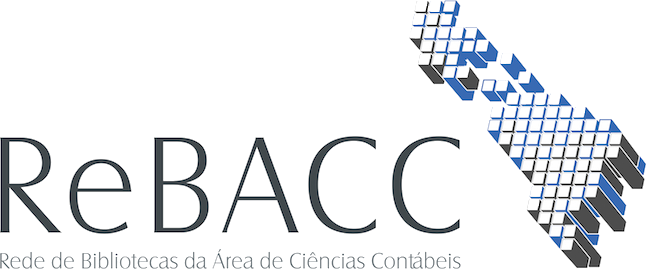Use este identificador para citar ou linkar para este item:
http://rebacc.crcrj.org.br/handle/123456789/6918Registro completo de metadados
| Campo DC | Valor | Idioma |
|---|---|---|
| dc.contributor | FAPERJ - Bolsa Jovem Cientista (processo: E-26/102.246/2013) e CNPq - Bolsa Produtividade em Pesquisa (processo: 308038/2013-4) | - |
| dc.creator | Barcellos, Leonardo Portugal | - |
| dc.creator | Cardoso, Ricardo Lopes | - |
| dc.creator | de Aquino, André Carlos Busanelli | - |
| dc.date | 2016-08-31 | - |
| dc.date.accessioned | 2020-08-13T19:05:32Z | - |
| dc.date.available | 2020-08-13T19:05:32Z | - |
| dc.identifier | http://asaa.anpcont.org.br/index.php/asaa/article/view/211 | - |
| dc.identifier.uri | http://rebacc.crcrj.org.br/handle/123456789/6918 | - |
| dc.description | In this paper, we map Brazilian professional accountants’ cognitive reflection abilities, exploring the demographic characteristics associated with such ability. To operationalize individuals’ cognitive reflection ability, we use the Cognitive Reflection Test (CRT). Our sample consists of 4,902 Brazilian accountants who voluntarily answered an online survey. We analyze data using three ordered logistic regression (ologit) models that provide a good fit for our data set. Our exploratory analysis reveals that male Brazilian accountants tend to be more reflective than their female counterparts. We also find that professional accountants tend to become less reflective, and, consequentially, more impulsive, as they age. Besides that, we present evidence that preparers and managers working for larger companies tend to be less reflective than their counterparts working for smaller firms. Additionally, our results suggest that auditors’ scores on CRT are significantly higher than preparers’, analysts’, managers’ and professors’ scores, raising interesting questions for future research. Our findings contribute not only to the literature in accounting and psychology, but also for practitioners interested in understanding how cognitive reflection abilities relate to demographic characteristics within the accounting field. Since cognitive reflection abilities significantly affect JDM quality, as reported in previous studies, the importance of our findings connects to the remarkable role that JDM plays in several fields of accounting activity. To our knowledge, our study is the first to assess how demographic individual characteristics predict CRT scores looking at professionals that share a background in a very specific area. Besides, we use the largest data set that we are aware of for studies of similar nature. | - |
| dc.format | application/pdf | - |
| dc.language | eng | - |
| dc.publisher | AnpCONT | - |
| dc.relation | http://asaa.anpcont.org.br/index.php/asaa/article/view/211/164 | - |
| dc.relation | http://asaa.anpcont.org.br/index.php/asaa/article/downloadSuppFile/211/192 | - |
| dc.relation | http://asaa.anpcont.org.br/index.php/asaa/article/downloadSuppFile/211/193 | - |
| dc.relation | http://asaa.anpcont.org.br/index.php/asaa/article/downloadSuppFile/211/194 | - |
| dc.rights | Direitos autorais 2016 Advances in Scientific and Applied Accounting | - |
| dc.source | Advances in Scientific and Applied Accounting; v. 9, n. 2 maio-ago (2016); 224-239 | - |
| dc.source | 1983-8611 | - |
| dc.subject | Judgment and decision-making. Cognitive abilities. Cognitive reflection test. Professional accountants. | - |
| dc.title | AN ASSESSMENT OF PROFESSIONAL ACCOUNTANTS' COGNITIVE REFLECTION ABILITY | - |
| dc.type | info:eu-repo/semantics/article | - |
| dc.type | info:eu-repo/semantics/publishedVersion | - |
| Aparece nas coleções: | Revista ASAA | |
Arquivos associados a este item:
Não existem arquivos associados a este item.
Os itens no repositório estão protegidos por copyright, com todos os direitos reservados, salvo quando é indicado o contrário.

